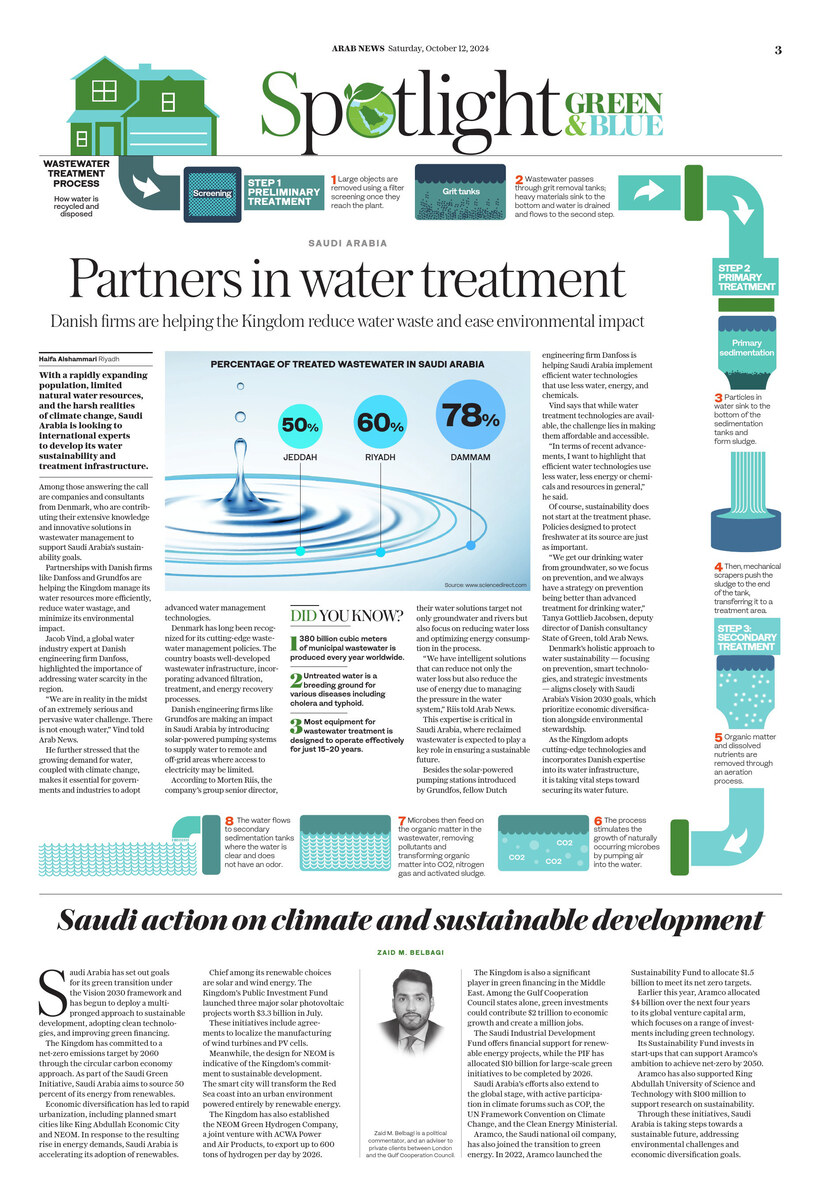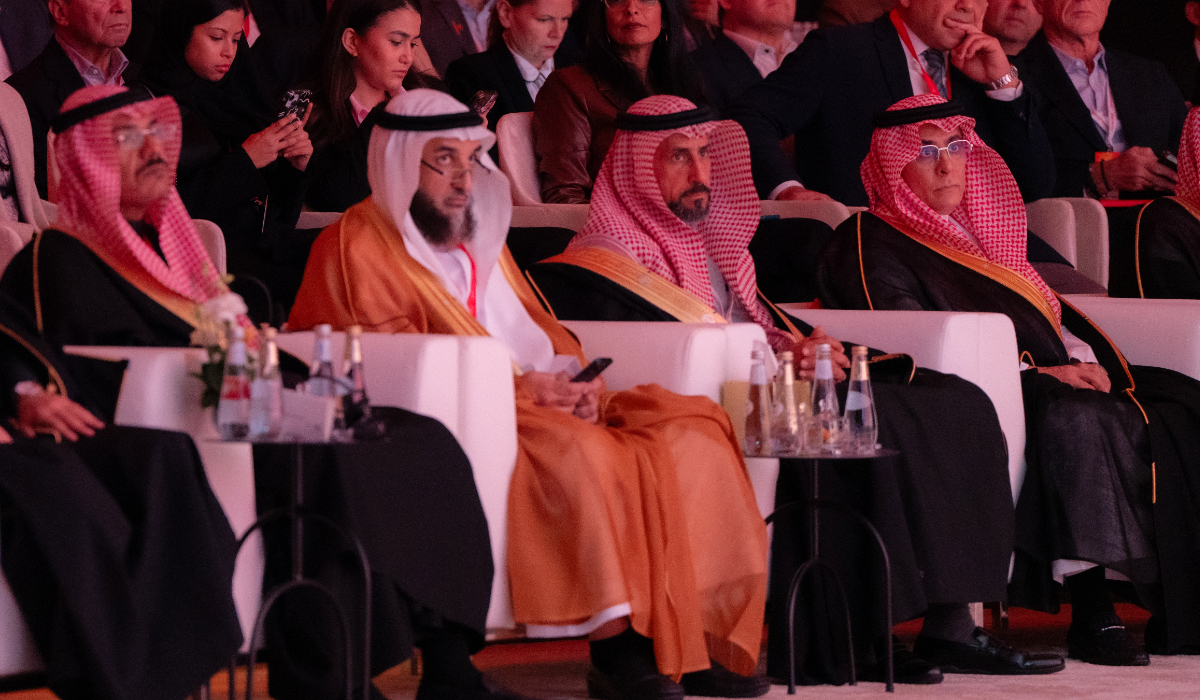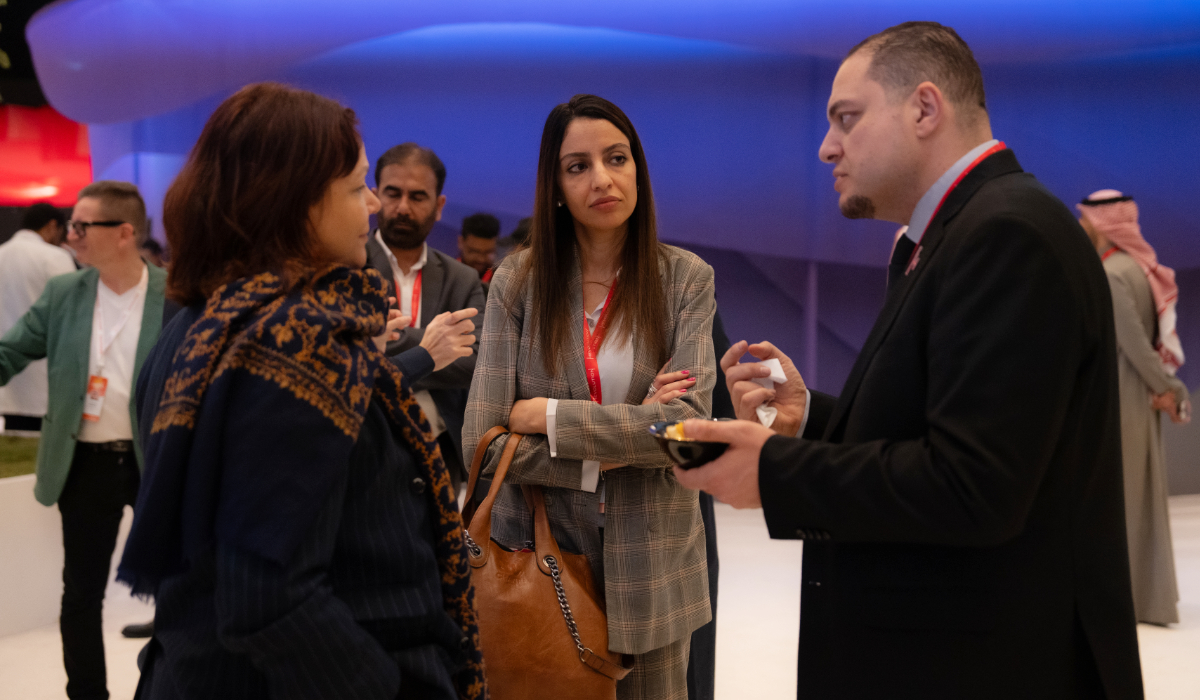RIYADH: With a rapidly expanding population, limited natural water resources, and the harsh realities of climate change, Saudi Arabia is looking to international experts to develop its water sustainability and treatment infrastructure.
Among those answering the call are companies and consultants from Denmark, who are contributing their extensive knowledge and innovative solutions in wastewater management to support Saudi Arabia’s sustainability goals.
Partnerships with Danish firms like Danfoss, Grundfos, and AVK are helping the Kingdom manage its water resources more efficiently, reduce water wastage, and minimize its environmental impact.
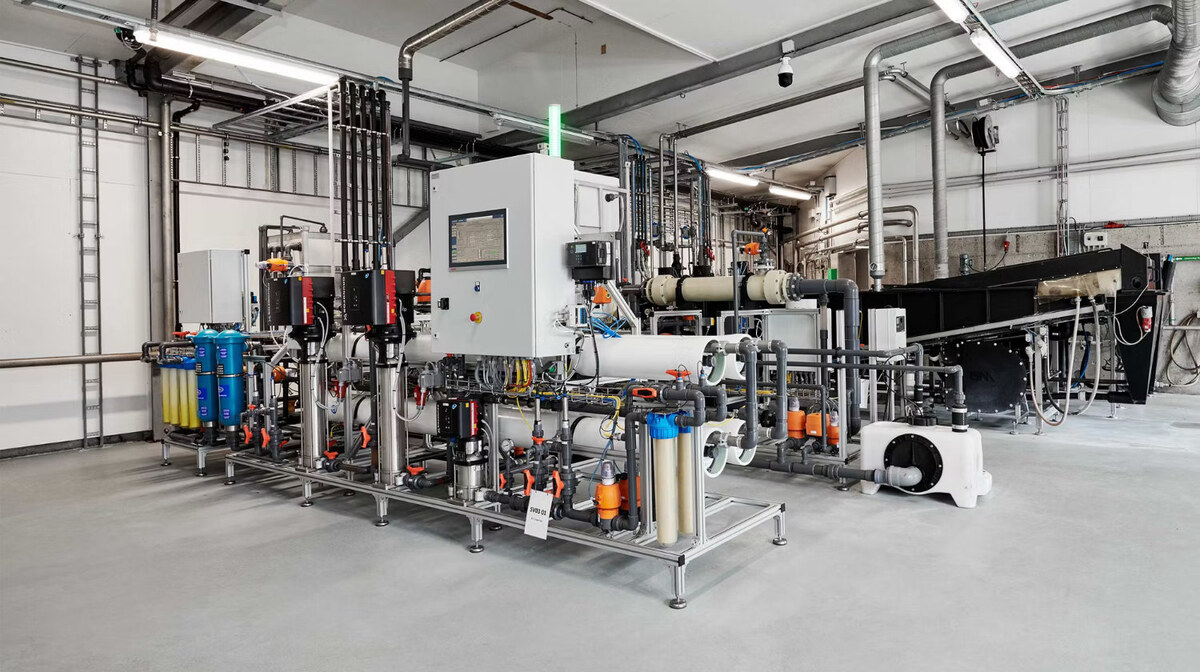
This system treats the wastewater from the Grundfos CED surface-treatment application with a series of filters and reverse osmosis. It then sends the cleaned water back to the CED unit for reuse. (Grundfos photo)
Saudi Arabia, a country that relies heavily on groundwater and desalination, faces many challenges in water resource management.
According to a 2019 report titled “Wastewater Treatment and Water Resources in Saudi Arabia,” the Kingdom’s water demand has skyrocketed over the past two decades.
Between 2007 and 2018, the population grew from 25 million to nearly 33 million, leading to a sharp rise in freshwater demand.
However, only a portion of wastewater in Saudi cities is treated and reused. According to a 2021 report from King Saud University, 78 percent of wastewater in Dammam is treated, 60 percent in Riyadh, and just 50 percent in Jeddah.

To combat waste and to encourage the reuse of precious freshwater resources, the Kingdom has sought the expertise of Danish firms renowned for their advancements in sustainable water management.
Jacob Vind, a global water industry expert at Danish engineering firm Danfoss, highlighted the importance of addressing water scarcity in the region.
“We are in reality in the midst of an extremely serious and pervasive water challenge. There is not enough water,” Vind told Arab News.

In the last step of the wastewater treatment process, the water flows to secondary sedimentation tanks where the water is clear, does not have an odor, and is considered fully treated. (Shutterstock photo)
He further stressed that the growing demand for water, coupled with climate change, makes it essential for governments and industries to adopt advanced water management technologies.
Denmark has long been recognized for its cutting-edge wastewater management policies. The country boasts well-developed wastewater infrastructure, incorporating advanced filtration, treatment, and energy recovery processes.
DID YOUKNOW?
• 380 billion cubic meters of municipal wastewater is produced every year worldwide.
• Untreated water is a breeding ground for various diseases including cholera and typhoid.
• Most equipment for wastewater treatment is designed to operate effectively for just 15-20 years.
Denmark’s approach to water sustainability relies on innovative technologies that reduce water wastage while conserving energy and resources.
Danish engineering firms like Grundfos are making an impact in Saudi Arabia by introducing solar-powered pumping systems to supply water to remote and off-grid areas where access to electricity may be limited.
According to Morten Riis, the company’s group senior director, their water solutions target not only groundwater and rivers but also focus on reducing water loss and optimizing energy consumption in the process.
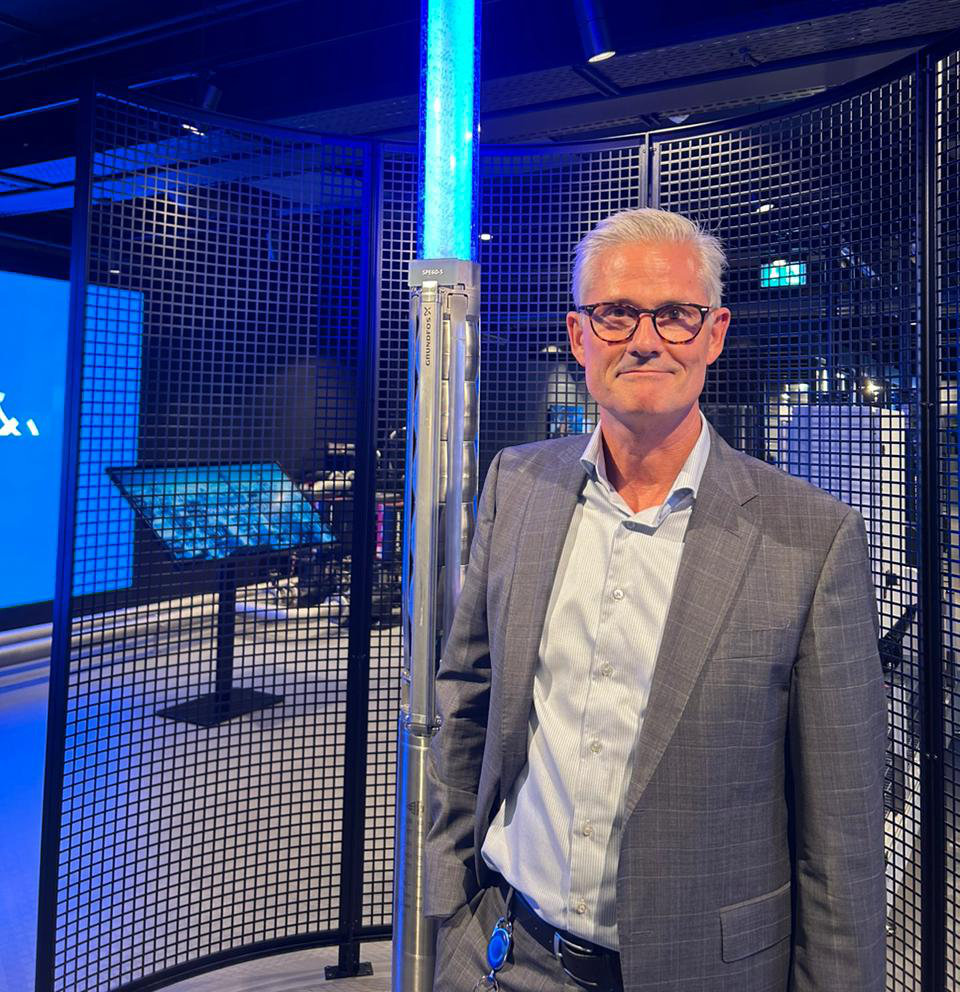
Morten Riis, group senior director and head of group external relations at Grundfos. (AN photo by Haifa Alshammari)
“We have intelligent solutions that can reduce not only the water loss but also reduce the use of energy due to managing the pressure in the water system,” Riis told Arab News.
This expertise is critical in Saudi Arabia, where reclaimed wastewater is expected to play a key role in ensuring a sustainable future.
The “Wastewater Treatment and Water Resources in Saudi Arabia” report highlighted how wastewater treatment infrastructure in the Kingdom lagged behind demand in the 1990s, leading to 40 percent of untreated wastewater being discharged into the environment.
However, recent investments and foreign collaborations are transforming the situation.
Opinion
This section contains relevant reference points, placed in (Opinion field)
Besides the solar-powered pumping stations introduced by Grundfos, fellow Danish engineering firm Danfoss is helping Saudi Arabia implement efficient water technologies that use less water, energy, and chemicals.
Vind says that while water treatment technologies are available, the challenge lies in making them affordable and accessible.
“In terms of recent advancements, I want to highlight that efficient water technologies use less water, less energy or chemicals and resources in general,” he said.
Meanwhile, over the past 30 years, Danish company AVK International has been providing solutions for wastewater, offering valves, hydrants, and accessories for water, gas, and sewage treatment in Jeddah.
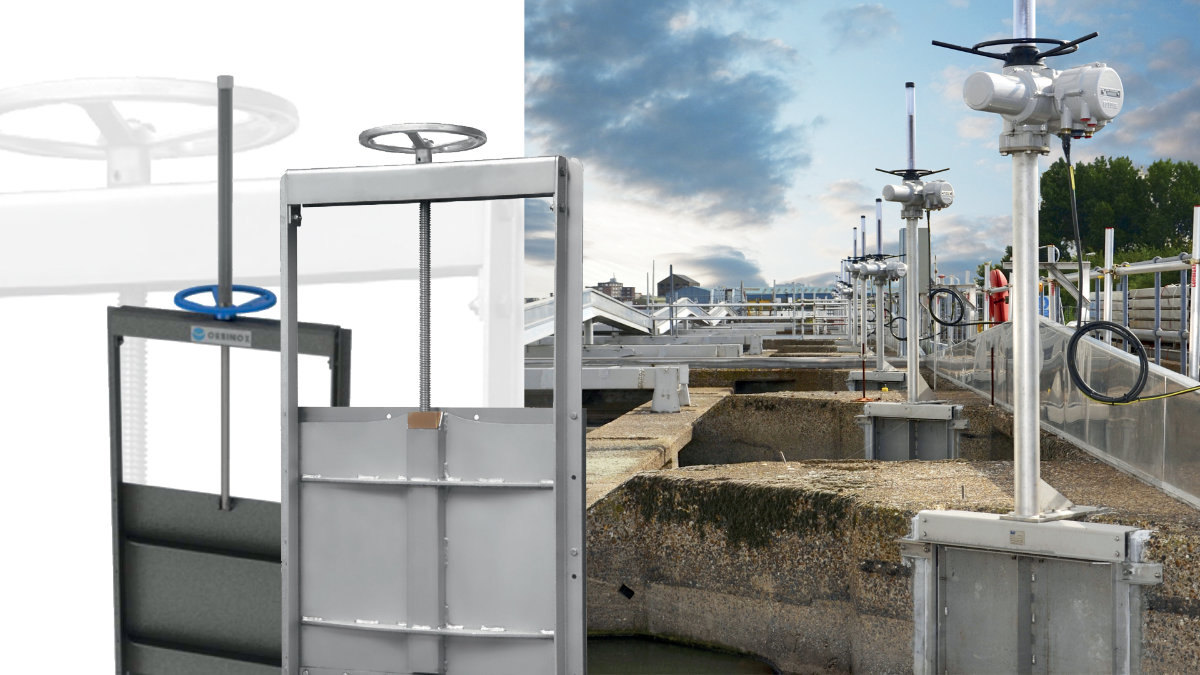
AVK International manufactures penstocks, which are used for wastewater treatment, pumping stations and collection of wastewater. (AVK photo)
Wastewater treatment involves several stages to ensure it meets the safety standards for different uses, such as irrigation, industrial processes, and potable water.
At the start of the process, preliminary treatment involves the removal of large debris and solid particles using screens and sedimentation tanks. This is followed by primary treatment, where water passes through sedimentation tanks. Here, smaller solids settle to form sludge.
During secondary treatment, aeration is introduced to stimulate microbes that break down organic matter, removing most pollutants. Then, in a process known as tertiary treatment, the water is further filtered and disinfected to remove harmful pathogens, rendering it usable for irrigation and industrial purposes.
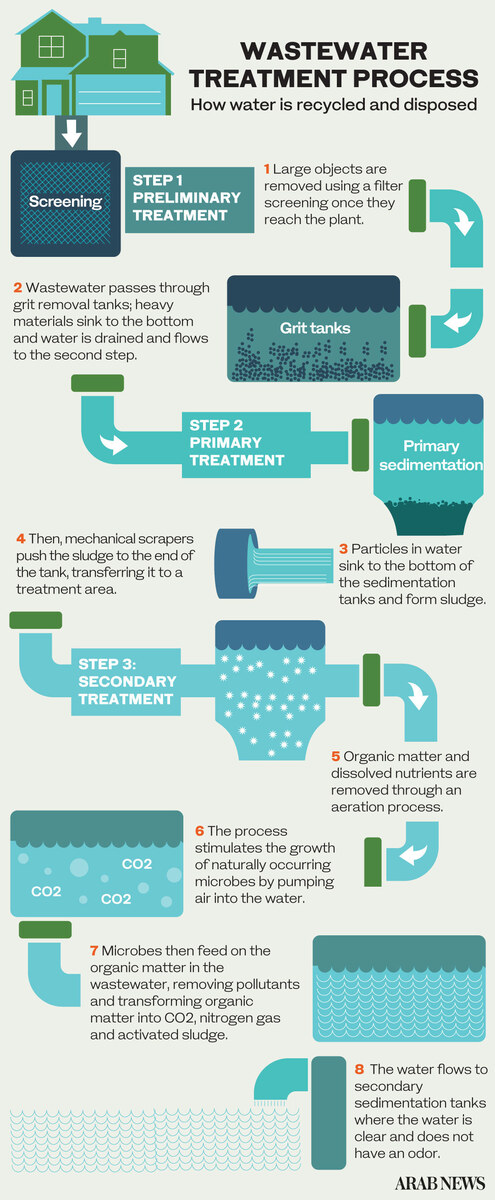
Some systems also include advanced treatment involving reverse osmosis and UV filtration, making the water safe for human consumption.
Of course, sustainability does not start at the treatment phase. Policies designed to protect freshwater at its source are just as important.
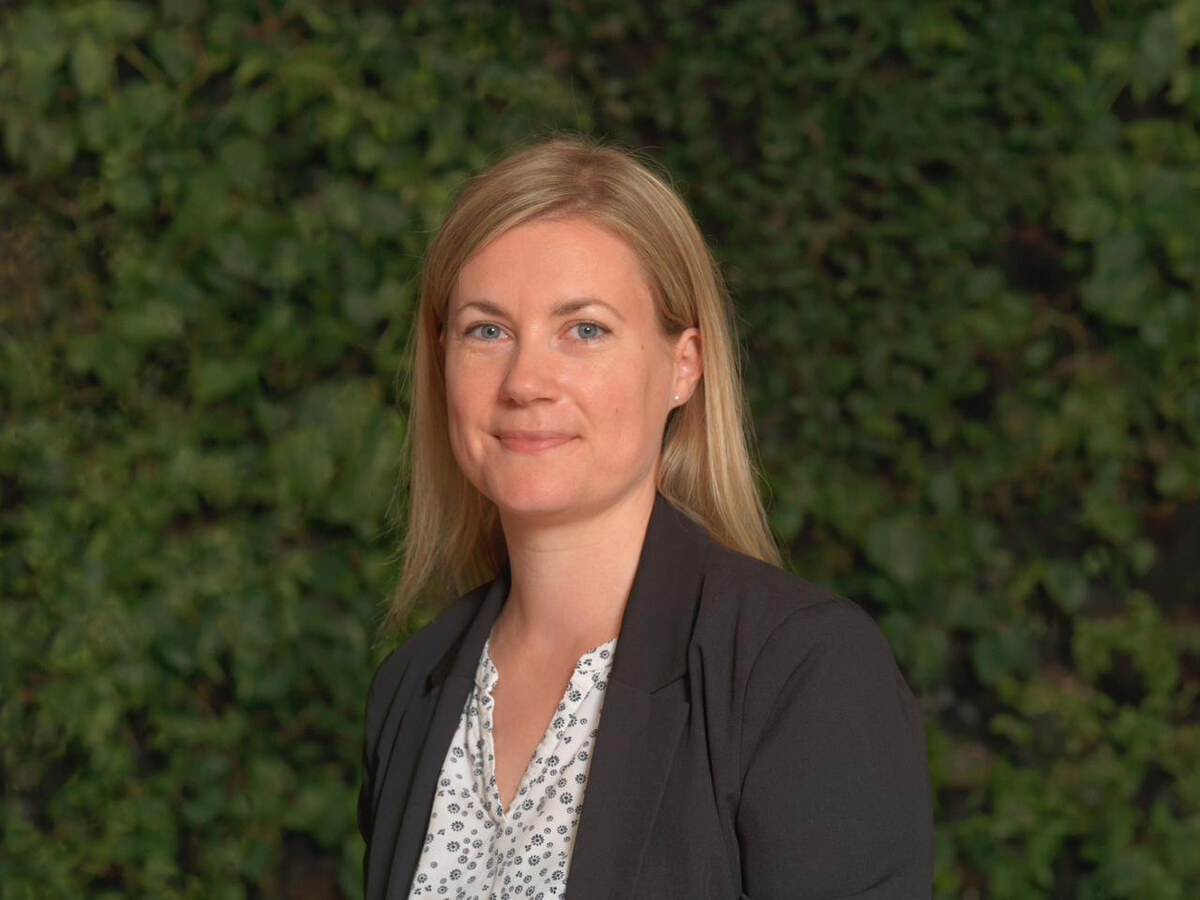
Tanya Gottlieb Jacobsen, deputy director of Danish consultancy State of Green. (Supplied)
“We get our drinking water from groundwater, so we focus on prevention, and we always have a strategy on prevention being better than advanced treatment for drinking water,” Tanya Gottlieb Jacobsen, deputy director of Danish consultancy State of Green, told Arab News.
Denmark’s holistic approach to water sustainability — focusing on prevention, smart technologies, and strategic investments — aligns closely with Saudi Arabia’s Vision 2030 goals, which prioritize economic diversification alongside environmental stewardship.
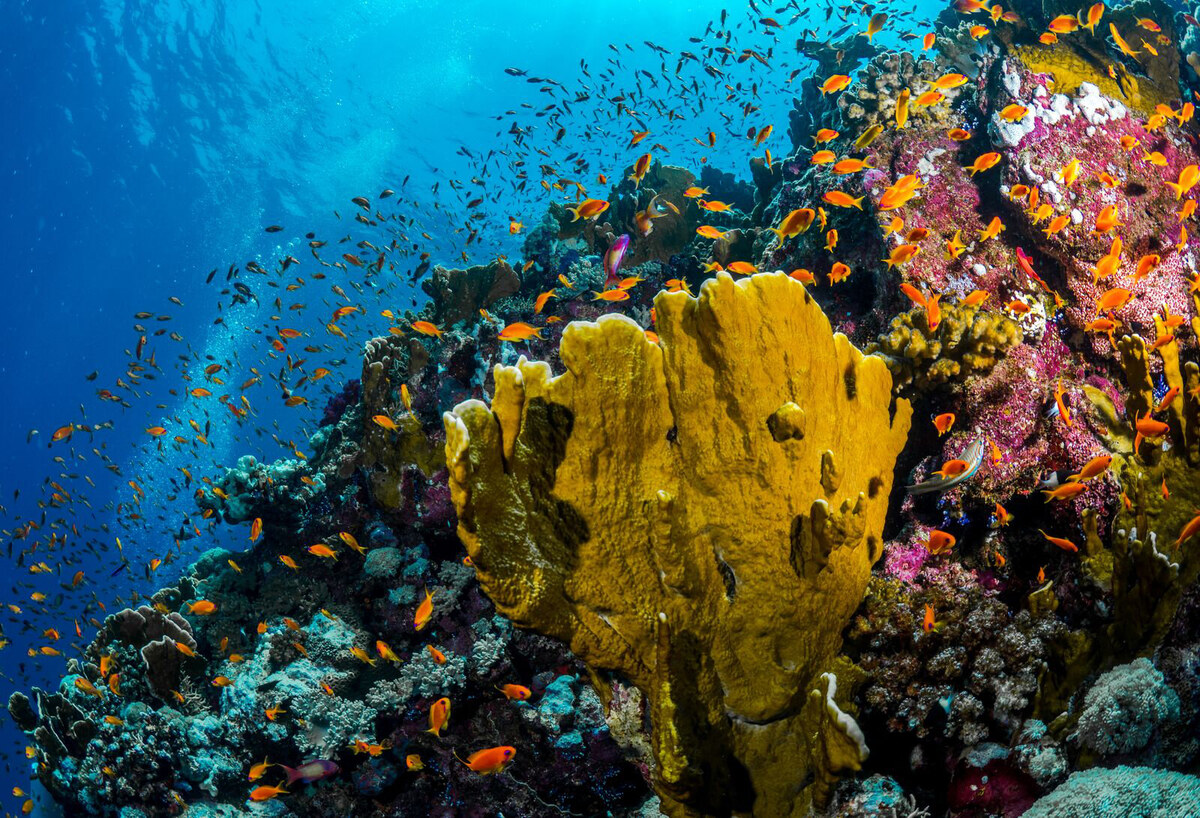
By eliminating pollutants in water, people support biodiversity, protect aquatic life, maintain the balance of local ecosystems and promote sustainable urban development. (Photo credit: Red Sea Global)
As the Kingdom adopts cutting-edge technologies and incorporates Danish expertise into its water infrastructure, it is taking vital steps toward securing its water future.
These efforts will not only help Saudi Arabia mitigate the effects of water scarcity and climate change but will also position the country as a leader in sustainable water management in the region.
